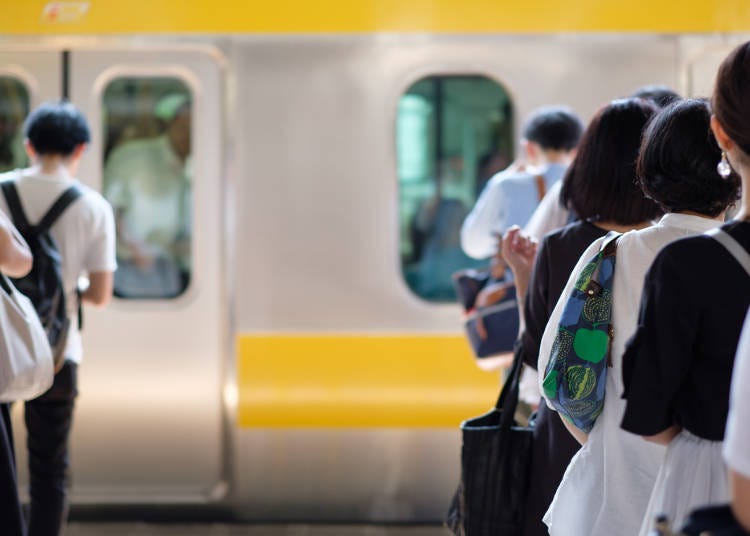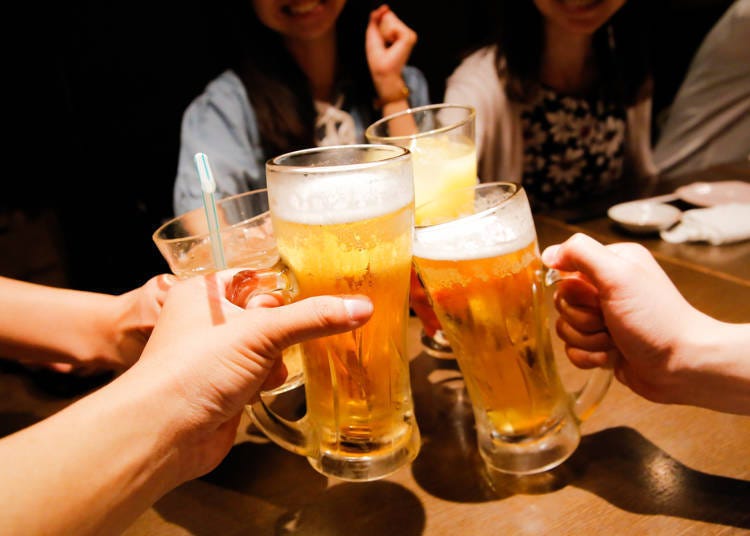
Recently we've been hearing about “balancing work and social life” and “work-environment reforms”. How do foreigners used to different work environments feel when working in Japan?
We compiled a list of things that shocked men who worked both in the U.S. and in Japan, taken from answers in articles published in the past. (The following reflects only the opinion of the interviewees.)
It seems like there are few questions focused on experience and skills

The only thing people care about during a job interview in America, is one’s ability. Whether you can work or not is determined by that one thing. For this reason, the skills and experience acquired by the applicant are important. Surely, in Japan, they also care about your experience and skills, but it doesn’t seem to be as important”.
Americans tend to have a clear vision of their career. For that reason, they change job often. In Japan, you can improve your knowledge and skills via training, upon entering a company, which might feel odd to Americans.
Transportation costs are covered by the workplace! The commuting benefits are great!

In Japan, the company covers the commuting costs! That’s really nice. In the U.S., paying for yourself is the norm, In America, it is also common to move around by car. It may be hard to see it happen, but it would be nice if the work places there paid for gasoline. Tokyo has lots of train lines, so using them is convenient”.
Covering commuting costs in Japan is normal. In the U.S. it’s the opposite. In Japan, too there are many people using cars, but commuting costs are paid. We should be thankful to Japanese companies for the support they create for workers.
Even in business interaction I have to worry about relations

“Business associates are not friends. You don’t have to worry about having a good time with your colleagues or your boss. I feel that Japanese people are more worried about human relations than they are about the work itself. When you work, it’s normal to have contacts with many people, regardless of how you feel!”
Certainly, Japanese people are sensitive when it comes to workplace relations. In a management-run survey of over 5000 full-time employees working in companies, various corporations, and government offices, it was revealed that “human relations” were the most prominent cause of stress.
“Americans can adapt to any person. I think it was because we grew up with people of different races and religions. Well, Japanese people don’t really talk about their private life so there is no way to connect (laugh)”
The After-working-hours drinking parties are annoying sometimes, but aren’t you a little jealous?

“Japanese people have the habit of going drinking after work? There are some people who open up at the table after a few drinks and their personality changes. I got a little jealous that they can switch it on and off so easily. The drinking parties the company organizes are a little annoying to be honest, but I can feel I’m part of the company and we can get to know each other, so I think it’s good that we have that opportunity.”
Going out for drinks after working hours with your coworkers is typical of Japanese company workers. There are a lot drinking parties for the end of the year and new year organized by the companies.
In America that is not common. Even if the company is having a party, it’s optional for workers to be there. There is a physical problem, which is driving to the company, so they cannot drink. There is an annoying feeling, but looking at Japanese people at these drinking parties, and unwind, made foreign workers feel a little jealous. I wish they could open up the same way.
*Prices and options mentioned are subject to change.
*Unless stated otherwise, all prices include tax.
Popular Tours & Activitiess
Recommended places for you
-

Kambei Sannomiyahonten
Yakiniku
Kobe, Sannomiya, Kitano
-
Goods

Yoshida Gennojo-Roho Kyoto Buddhist Altars
Gift Shops
Nijo Castle, Kyoto Imperial Palace
-

ISHIDAYA Hanare
Yakiniku
Kobe, Sannomiya, Kitano
-

Jukuseiniku-to Namamottsuarera Nikubaru Italian Nikutaria Sannomiya
Izakaya
Kobe, Sannomiya, Kitano
-

Kanzenkoshitsuyakinikutabehodai Gyugyu Paradise Sannomiya
Yakiniku
Kobe, Sannomiya, Kitano
-
Appealing

Rukku and Uohei
Izakaya
Sapporo / Chitose
-

These Tokyo Subway Stamps Are Free, Exclusive, and Weirdly Addictive
by: Guest Contributor
-
Ad

Discover the "Miraculous Forest" in the Heart of Tokyo: The Institute for Nature Study (9 Minutes from JR Meguro Station)
-

Only in Tokyo? A Legendary Manga Artist's New Masterpiece Is Hiding Underground
by: Guest Contributor
-
Ad

[Tokyo, Ueno] Journey to the Sacred Grounds of the Tokugawa Shoguns: Join the "EDO SHOGUN’S LEGACY TRAIL TOUR" – Where Special Access, Modern Art, and Digital Innovation Converge
by: Guest Contributor
-

Japan’s Shinkansen Is About to Change Travel in an Unexpected Way
by: Guest Contributor
-

Jujutsu Kaisen Takes Over JR East With a Wrapped Shinkansen This Winter
by: Guest Contributor
-

'Thought I'd Die in Japan' - 8 Cases of Reverse Culture Shock Discussed by Taiwanese Living in Japan
-

Kansai-Ben: 18 Fun Kansai Dialect Phrases To Use When Visiting Osaka
by: WESTPLAN
-

Autumn in Japan 2025: Fall Foliage Forecast & Where to Enjoy the Colorful Leaves (+Tour Info)
-

'Japanese People on Trains...' Italian Woman Surprised by Japanese Rules
-

Legacy of Tradition: Discover 5 of Nihonbashi's Oldest Shops with Over 100 Years of History
-

Complete Guide to Niigata Airport (KIJ): Dining, Souvenirs, Massages, and More!
- #best sushi japan
- #what to do in odaiba
- #what to bring to japan
- #new years in tokyo
- #best ramen japan
- #what to buy in ameyoko
- #japanese nail trends
- #things to do japan
- #onsen tattoo friendly tokyo
- #daiso
- #best coffee japan
- #best japanese soft drinks
- #best yakiniku japan
- #japanese fashion culture
- #japanese convenience store snacks












